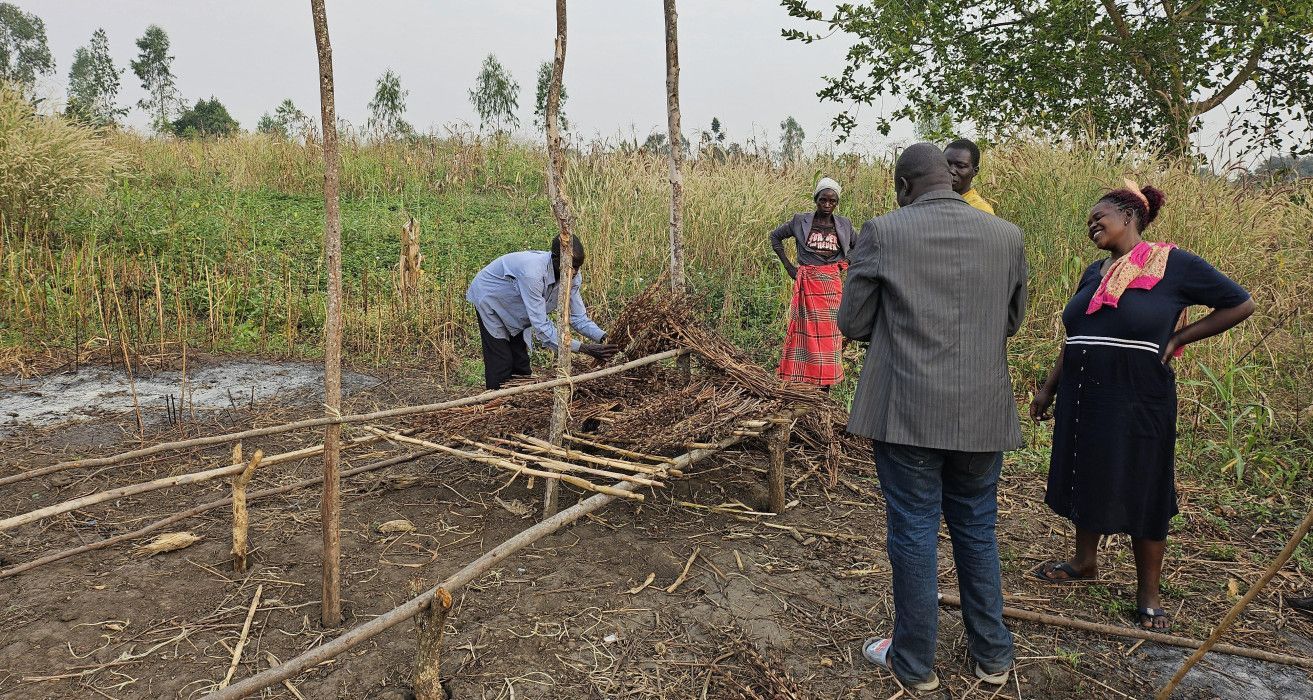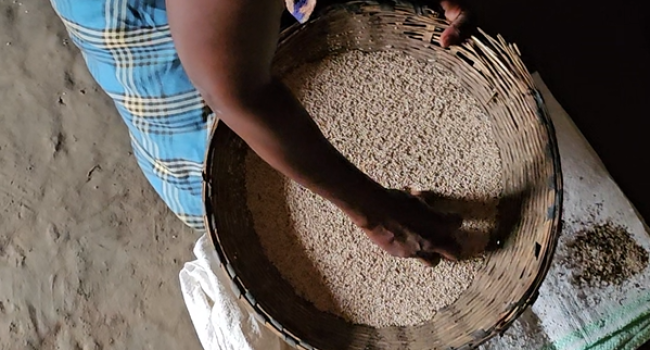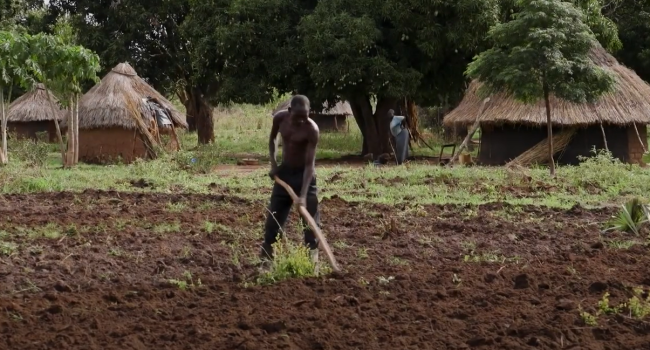
Update Sesame project
Since 2021 we’ve been part of a great project in Northern Uganda, which aims to improve the living conditions of small-scale farmers in the region. How? By building organic and inclusive value chains for organic sesame and soy beans.
3 years later: how are we doing?
Our CEO Hendrik Wijnen visited Uganda to see how the sesame seed project is doing after three years. Have farmers been able to expand their land? Have yields improved? And do they make more money?
The answer to all three questions is: yes.
A farmer told Hendrik: 'The better harvest has allowed me to invest: I bought an ox that cleans my land, so that we could grow the field from 0.5 to 1.5 hectares. If things continue like this, in a year's time I will rent a tractor to cultivate my land.'
Up to 70% more yield
Hendrik: 'It was nice to see that the farmers use the pieces of sail they have at their disposal very well. They place the tarpaulin under their drying rack, which means that fewer stones and sand get in, which in turn ensures a higher yield.'
The backpack sprayer with organic (herbal) extracts that farmers use to treat their crops against bugs is also a great success, Hendrik notes. 'During my visit there was an active demand for more sprayers, since now they had only one copy available per village.’
It is difficult to point out precisely how much more revenue these types of measures generate. The farmers themselves talk about 'more bags of harvest from the land', but we estimate that their yield has increased by about 30 to 70 percent.

How many farmers have been trained now?
After three years, 12,000 farmers have been trained and certified by a local NGO. Therefore, we expect that the goal of 25,000 trained and certified farmers in six years is certainly within reach.
The farmers are trained in three ways:
- In a group under the tree in the village for theory lessons
- In the field for practical experience
- With videos in the form of infographics.
Why this training is so popular
Due to low literacy in the region, the training is very graphic and practical. Not only are the videos very visual, but they also show the direct actions the farmers have to take to put the seeds in the ground by hand to memorize all of it.
A method that is well received! The farmers' reactions to the training are all positive: they feel better trained - the video training in particular is very popular - use the knowledge in their daily work and plan to grow their business even more.
The money earned is, as mentioned earlier, invested in their country, but also for the children's school fees and other essentials. An older farmer told Hendrik that with his new income he was able to buy a mattress for the first time in his life.
How much did the incomes raise?
All in all, we feel very positive about the progress of the project. Now that we are halfway, the local NGO will soon conduct an official interim evaluation, comparing the farmers' income from the baseline report with today. We’re very curious and will definitely keep you posted!
Export to the European market
DO IT Organic is the main partner in the project and provides knowledge about the European market. We also import and distribute organic sesame in Europe.
Watch the video below to learn more about the project, the farmers and our goals.
